 In their book chapter “The Mask of Integrity,” published in Citizen Espionage: Studies in Trust and Betrayal, Drs. Joyce and Robert Hogan, outlined four characteristics that typified the ideal betrayer:
In their book chapter “The Mask of Integrity,” published in Citizen Espionage: Studies in Trust and Betrayal, Drs. Joyce and Robert Hogan, outlined four characteristics that typified the ideal betrayer:
Charisma – According to Dr. Tomas Chamorro-Premuzic, vice president of research and innovation at Hogan, there are three ways to influence others: force, reason, or charm. Force and reason are rational – even when people are forced to do something, they obey for a good reason. Charm, on the other hand, is based on emotional manipulation and has the ability to trump rational assessments.
Self-absorption – The second characteristic of an ideal betrayer is an unusual degree of self-absorption, or, more to the point, a relentless drive for self-advancement. Betrayers possess a ruthless dedication to self-advancement to the extent that other people lose their value as humans and become objects to be manipulated.
Self-Deception – The third characteristic that typifies the ideal betrayer is self-deception. A major tenet of psychoanalysis and existentialism is that people are prone to deceive themselves about the reasons for their actions.
Hollow Core Syndrome – The final characteristic of the ideal betrayer is a pattern of personality characteristics called the hollow core syndrome. The hollow core syndrome refers to people who are overtly self-confident, who meet the public well, who are charming and socially poised, and who expect others to like them, but who are privately self-doubting and unhappy.
Unfortunately, this charm, confidence, and talent for ingratiation provides betrayers the tools they need to find employment at and quickly ascend the ranks of large, hierarchical organizations, and the private self-doubt associated with the hollow core fuels their pursuit of the money, power, and prestige offered by senior management positions. Trust and Betrayal, a new eBook from Hogan, examines what companies can do to identify and mitigate the effects of betrayers in their ranks.
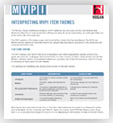 The Motives, Values, Preferences Inventory identifies the core goals, drivers, and interests that determine what gets people to the office each day. The MVPI consists of 10 primary scales, which are further divided into five item themes. The MVPI item themes provide additional interpretive power by categorizing participants’ responses to the questions that compose each MVPI scale.
The Motives, Values, Preferences Inventory identifies the core goals, drivers, and interests that determine what gets people to the office each day. The MVPI consists of 10 primary scales, which are further divided into five item themes. The MVPI item themes provide additional interpretive power by categorizing participants’ responses to the questions that compose each MVPI scale.

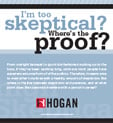 Most people have experienced some form of office politics, and it’s wise to view other’s motives with a healthy amount of skepticism. But where is the line between skepticism and paranoia, and at what point does that paranoia interfere with a person’s career?
Most people have experienced some form of office politics, and it’s wise to view other’s motives with a healthy amount of skepticism. But where is the line between skepticism and paranoia, and at what point does that paranoia interfere with a person’s career? An individual’s ability to exercise leadership is hinged on his or her ability to persuade others to follow. According to the Hogan Leadership Model, followers look for four essential qualities in a leader: integrity, judgment, competence, and vision. Of these, integrity is most essential.
An individual’s ability to exercise leadership is hinged on his or her ability to persuade others to follow. According to the Hogan Leadership Model, followers look for four essential qualities in a leader: integrity, judgment, competence, and vision. Of these, integrity is most essential.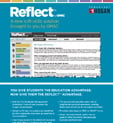 Hogan and the Graduate Management Admission Council (GMAC) partnered to launch Reflect by GMAC, the first self-directed, personality-based development tool designed to bring the power of self-awareness to B-school students.
Hogan and the Graduate Management Admission Council (GMAC) partnered to launch Reflect by GMAC, the first self-directed, personality-based development tool designed to bring the power of self-awareness to B-school students. In their book chapter “The Mask of Integrity,” published in Citizen Espionage: Studies in Trust and Betrayal, Drs. Joyce and Robert Hogan, outlined four characteristics that typified the ideal betrayer:
In their book chapter “The Mask of Integrity,” published in Citizen Espionage: Studies in Trust and Betrayal, Drs. Joyce and Robert Hogan, outlined four characteristics that typified the ideal betrayer: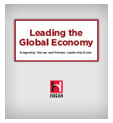 As businesses continue to expand into China, and Chinese companies establish operations around the world, employers find themselves having to integrate both Chinese and Western perspectives into their organizational leadership roles. Understanding the inherent differences between Chinese and Western leadership styles is essential for successful talent management programs.
As businesses continue to expand into China, and Chinese companies establish operations around the world, employers find themselves having to integrate both Chinese and Western perspectives into their organizational leadership roles. Understanding the inherent differences between Chinese and Western leadership styles is essential for successful talent management programs.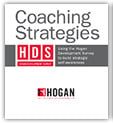 Providing candidates with accurate feedback about the behaviors they should keep doing, stop doing, and start doing is the first step to improving their interpersonal effectiveness. The Hogan Personality Inventory, Hogan Development Survey, and the Motives, Values, Preferences Inventory provide useful feedback about what individuals need to do to improve their performance at work. This interpretation guide uses a simple, but focused, series of steps to help affect behavioral and repetitional change for the coaching candidate. Visit our bookstore to purchase Coaching Strategies.
Providing candidates with accurate feedback about the behaviors they should keep doing, stop doing, and start doing is the first step to improving their interpersonal effectiveness. The Hogan Personality Inventory, Hogan Development Survey, and the Motives, Values, Preferences Inventory provide useful feedback about what individuals need to do to improve their performance at work. This interpretation guide uses a simple, but focused, series of steps to help affect behavioral and repetitional change for the coaching candidate. Visit our bookstore to purchase Coaching Strategies.
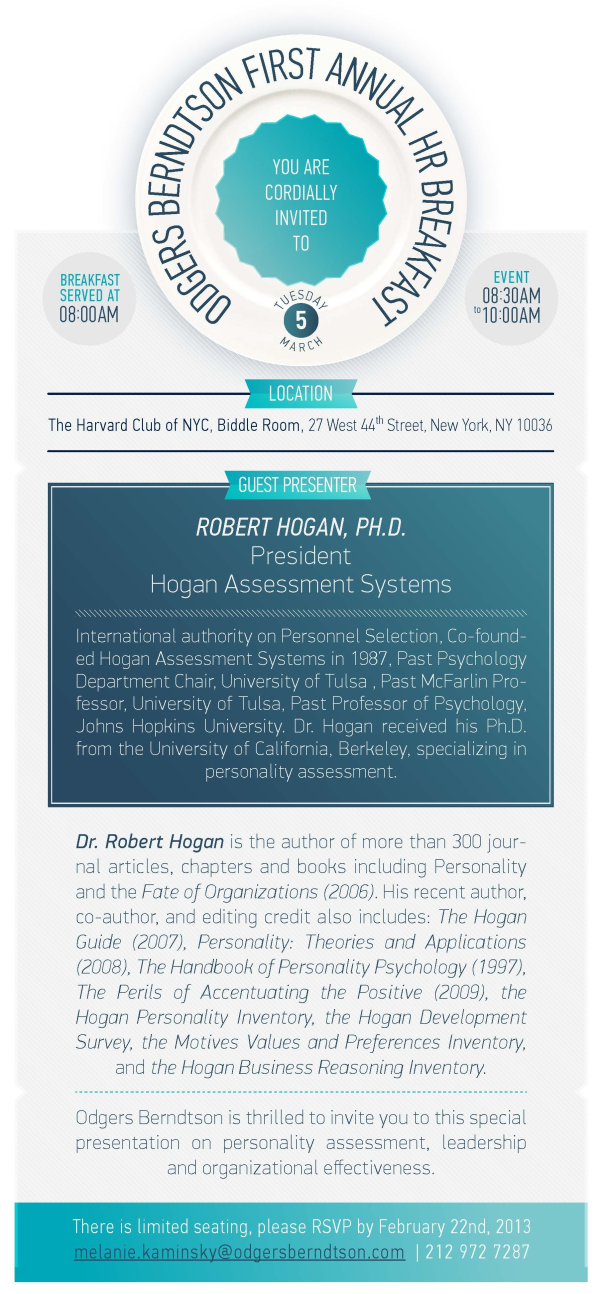
 They may like it, but extroverted people are less likely to put a ring on it.
They may like it, but extroverted people are less likely to put a ring on it.